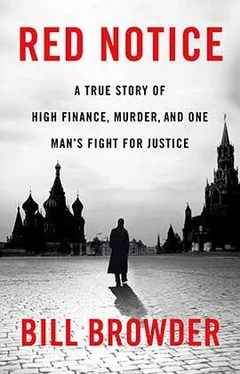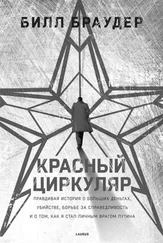I scrolled to the bottom. There was no Magnitsky.
I called Kyle immediately. «What the hell’s going on? I don’t see the bill».
«I don’t know, we’re trying to figure that out ourselves».
I began to suspect that some ugly horse-trading was going on behind the scenes. Kerry seemed to be stonewalling.
Since this problem appeared to be with Kerry specifically, I figured that if I could get a meeting with him, then the power of Sergei’s story might sway him the way it had McCain and McGovern.
I called Juleanna. She’d been batting a thousand when it came to getting meetings for me with senators — but when she tried Kerry, she struck out. The best she could do was get me an audience with his adviser on Russian issues, a Senate staffer named Jason Bruder.
I flew to Washington and the day after I arrived, Juleanna and I went to the Dirksen Senate Office Building to meet Bruder outside the Foreign Relations Committee room. Bruder, a thirtysomething man of average height with a close-cropped goatee, led us into the room, a cavernous chamber with a U-shaped arrangement of tables and desks. Finding no good place for us to sit comfortably, we each dragged a chair from the audience area and arranged them in a little circle in the middle of the floor.
After thanking Bruder for taking the time to meet, I began to tell Sergei’s story. Three sentences in, Bruder cut me off. «Yes, yes. I know everything about this case. I’m very upset by what happened. He and his family deserve justice».
«That’s why we’re here».
«Listen, I’ve given this a lot of thought. The senator and I would really like to help with the Magnitsky case».
«That’s great. Will Senator Kerry support the bill and push it through committee?»
Bruder leaned back, his chair creaking. «Well, I really don’t think the Magnitsky Act is the right approach to dealing with these problems, Mr. Browder».
Here we go again , I thought, thinking back to Kyle Scott and all the other nervous careerists in the US government. «What do you mean it’s not the ‘right approach’?»
He then repeated the same tired State Department script nearly word for word. I tried to argue with him, but he wouldn’t listen.
Finally Bruder said, «Listen, Bill, this case is important to us. I’d like to get Senator Kerry to bring up Magnitsky directly with the Russian ambassador the next time they meet».
Bring it up with the Russian ambassador? Was he fucking kidding? Sergei’s name had been on the front page of every major newspaper in the world! The Russian president and his senior ministers had spent countless hours trying to minimize the fallout from the Magnitsky case, and Bruder thought that a quiet conversation with the ambassador might help?
I left the meeting cursing under my breath.
It turned out that Kerry’s opposition to the Magnitsky Act had nothing to do with whether he thought it was good or bad policy. The rumor in Washington was that John Kerry was blocking the bill for one simple reason: he wanted to be secretary of state after Hillary Clinton resigned. According to the story making the rounds, one of the conditions for his getting the job was to make sure that the Magnitsky Act never saw the light of day at the Senate Foreign Relations Committee.
For the next few months nothing happened with the Magnitsky Act. But then, in the spring of 2012, we were handed an unexpected gift. After nearly twenty years of negotiating, in August of that year Russia was finally going to be admitted to the World Trade Organization (WTO). The moment Russia became a WTO member, every other member could trade with Russia on the same terms, without tariffs or other costs. Only one country would be excluded: the United States, thanks to something called the Jackson-Vanik amendment.
This thirty-seven-year-old piece of legislation, put in place in the mid-1970s, imposed trade sanctions on the Soviet Union to punish it for not allowing Soviet Jews to emigrate. At first, the Soviets dug in their heels, but after several years they realized that the costs of the sanctions were simply too great, and eventually 1.5 million Jews were allowed to leave the country.
Thirty-seven years later the Soviet Union no longer existed, and Russian Jews could freely emigrate, but Jackson-Vanik was still on the books. If it remained, then it would effectively prevent American businesses such as Boeing, Caterpillar, Ford, and American beef exporters from enjoying the same trade benefits with Russia as every other WTO member in the world.
As far as the US business community was concerned, Jackson-Vanik had to go, and the Obama administration fully supported this idea. If the president could have repealed Jackson-Vanik by himself, he would have. But in order to get the law off the books, he needed an act of Congress.
I was in Washington working with Juleanna on our campaign during the week that the administration began its campaign to repeal Jackson-Vanik. After a morning of meetings, Juleanna and I were breaking for lunch at the snack bar in a basement hallway of the Hart Office Building. As I sat at a flimsy aluminum table and ate my salad, Juleanna tapped me on the arm and pointed discreetly down the hall. There, walking with a small group of aides, was Senator Joe Lieberman, one of the most high-profile cosponsors of the Magnitsky Act.
She whispered, «Bill, there’s Lieberman. I think you should talk to him about this whole Jackson-Vanik situation».
«What, now? He’s just walking down the hall. How am I going to have a proper conversation with him?»
While I’ve learned to be assertive when necessary, to this day I’m still uncomfortable with foisting myself on unsuspecting strangers, especially those who are constantly bombarded by the public.
But Juleanna ignored my obvious discomfort, stood, and practically pulled me out of my seat. «Come on, Bill. Let’s go talk to him». Side by side, we crossed the hallway and headed toward Senator Lieberman.
As soon as we got within earshot of Lieberman, Juleanna held out her hand and said, «Sorry to interrupt you, Senator, but I was wondering if I could introduce you to Bill Browder, the man behind the Magnitsky Act».
Lieberman and his aides stopped. Senators have hundreds of things on their minds, and it sometimes takes them a few seconds to figure out who belongs to what. When the phrase Magnitsky Act clicked for him, his face brightened. «Ah, Mr. Browder». He turned to me. «It’s a pleasure to meet you. Thank you for the important work you’ve been doing».
I was flattered that he had any idea who I was. «I wouldn’t have been able to achieve anything without your support», I said truthfully. «There’s a problem, though. I’m sure you know that the administration is pushing for the repeal of Jackson-Vanik».
«Yes, we’re hearing that».
«I think it’s unconscionable that while the administration is repealing one of the most important pieces of human rights legislation ever, they’re blocking Magnitsky».
He took a moment, then said sincerely, «You’re absolutely right. We need to do something about this».
«What can be done?»
«I’ll tell you what. We’ll tell the administration that we’ll block Jackson-Vanik repeal unless they stop blocking Magnitsky. I’m sure John, Ben, and Roger [14] That is, Senators McCain, Cardin, and Wicker.
would join me on this».
«That would be powerful. Thank you».
«No, Bill. Thank you for everything you’ve done». Lieberman then turned to his aides, told one of them to remind him to get on this letter, and walked off, leaving Juleanna and me standing there, the bustle of the hallway buzzing all around us.
After a few seconds I turned to her. «Did that really just happen?»
Читать дальше












